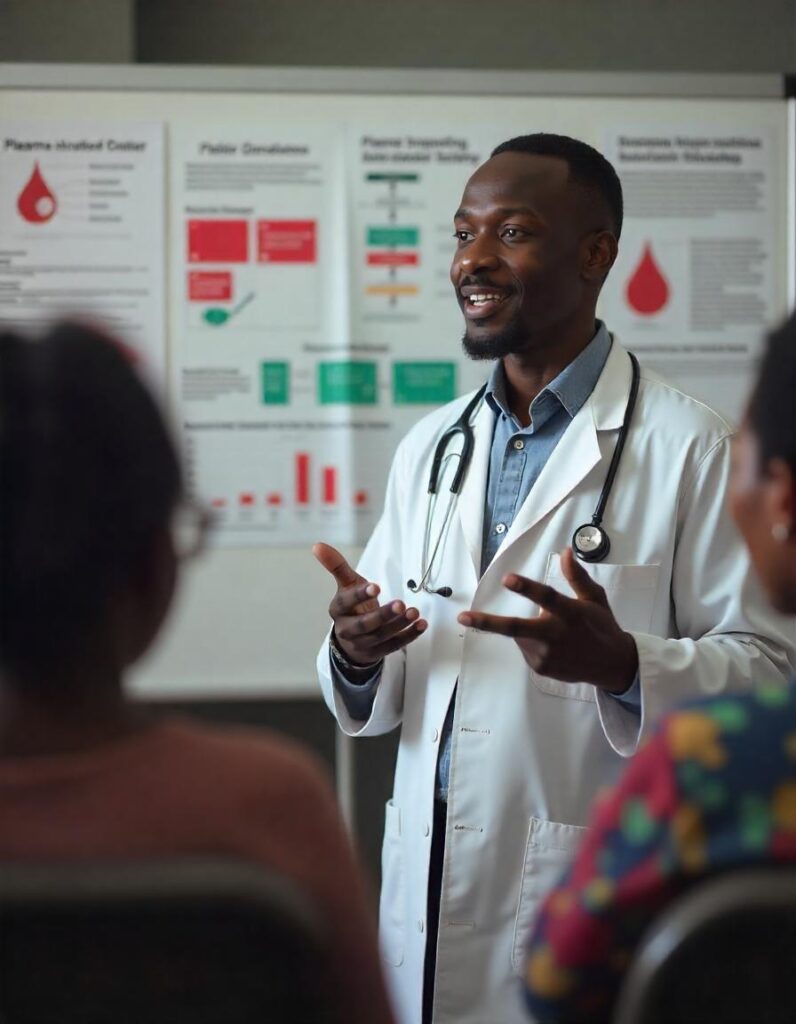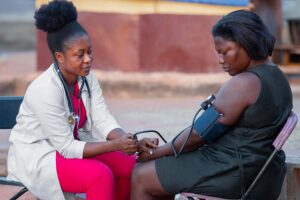When it comes to healthcare, understanding your genotype and blood group is crucial, especially in the context of blood donation. Both these factors play a significant role in not only your health but also in how safe and effective your blood donation process can be. However, many people often confuse these two terms. This article will explore the differences between genotype and blood group, explain why they matter in the context of blood donation, and highlight how these distinctions can affect your eligibility to donate life-saving blood.
What is the Difference Between Genotype and Blood Group?
Genotype refers to the genetic makeup of an individual, specifically their inherited genes. These genes can influence a variety of characteristics, such as physical traits and health risks. In Nigeria, the most commonly discussed genotypes are AA, AS, SS, and SC.
- AA: Normal genotype with no sickle cell trait.
- AS: A carrier of the sickle cell trait.
- SS: Sickle cell disease, which can result in health complications.
- SC: Another form of sickle cell disease, but less common.
On the other hand, your blood group refers to the type of antigens present on the surface of your red blood cells. The main blood groups include A, B, AB, and O, with each blood group being either Rh-positive (+) or Rh-negative (-). The rhesus factor (Rh) plays a vital role in blood compatibility, particularly during transfusions.
- Blood Group A: Has A antigens on the red blood cells.
- Blood Group B: Has B antigens.
- Blood Group AB: Has both A and B antigens.
- Blood Group O: Has no A or B antigens but can be a universal donor.
The rhesus factor adds another layer of complexity. If you are Rh-positive (e.g., O+), your blood can safely be received by others with the same blood group or with a compatible Rh factor.
Why Does It Matter in Blood Donation?
Understanding both your genotype and blood group is important when donating blood because these factors influence compatibility with recipients. Blood compatibility is essential for ensuring that blood transfusions don’t lead to severe reactions.
For example, if someone has a blood group A and you have blood group B, your blood would not be compatible. The same goes for the rhesus factor—Rh-negative individuals cannot receive Rh-positive blood without the risk of an immune reaction. In the context of blood donation, knowing your blood group is critical.
Similarly, your genotype impacts your overall health and ability to donate certain types of blood, especially plasma donation and bone marrow donation. Individuals with sickle cell disease (SS) are generally not eligible to donate blood because of the complications associated with the condition.
The Importance of Blood Donation in Nigeria
In a country like Nigeria, the need for blood is significant, especially in hospitals and emergency medical situations. The blood donation process involves collecting whole blood, plasma, or platelets, all of which are vital for saving lives. Blood donation is especially crucial for emergency surgeries, trauma victims, and individuals suffering from chronic conditions like sickle cell disease.
However, in Nigeria, there are still misconceptions and fears surrounding blood donation. Many people are unaware of the blood donation benefits, not just for those who receive the blood, but for the donors themselves. Studies have shown that donating blood can improve skin health, reduce iron levels, and even lower the risk of heart disease.
Plasma Donation – A Life-Saving Procedure
Plasma donation is another aspect that many Nigerians are not familiar with. Plasma donation centers across the country offer individuals the opportunity to donate blood plasma, a yellowish fluid that is essential for clotting and immune function. Many plasma centers also accept platelet donation, which helps in treating cancer patients, those with bleeding disorders, and individuals undergoing surgery.
Risks of Not Donating Blood
If you are eligible to donate but choose not to, the risks are not just limited to blood supply shortages. A shortage of blood plasma and platelets can make it more difficult for hospitals to provide the necessary treatments. Moreover, failing to donate blood regularly deprives people in need of life-saving resources, creating a gap in the health system.
Why Oneus is Pioneering Blood Donation in Nigeria
Oneus is leading the way in blood donation and plasma donation across Nigeria. The Oneus blood donation website provides a platform for individuals to sign up for blood and plasma donations, making it easier to contribute to the health of others. They also offer valuable information on bone marrow donation, blood cord banking, and umbilical cord blood banking.
Oneus understands the vital role blood drives play in ensuring that there is a constant supply of blood, and they work tirelessly to organize these events across the country. Their blood donation process is seamless, ensuring that donors feel comfortable and safe throughout the experience.
How to Get Involved: Give Blood, Save a Life
It’s time to take action. If you are eligible, consider giving blood today. Not only will you be helping to save a life, but you will also be contributing to a stronger, healthier Nigeria. Whether you’re donating plasma, bone marrow, or platelets, your contribution is invaluable.
Give Blood, Save a Life – Book Your Donation Now!
For more information, contact us at info@oneusng.com or call +234 902 168 2822. You can also visit our website at https://www.oneusng.com/ to schedule your next donation.
By understanding the importance of genotype, blood group, and the blood donation process, you can make a difference today. Donating blood not only saves lives but also helps improve the healthcare system in Nigeria.




